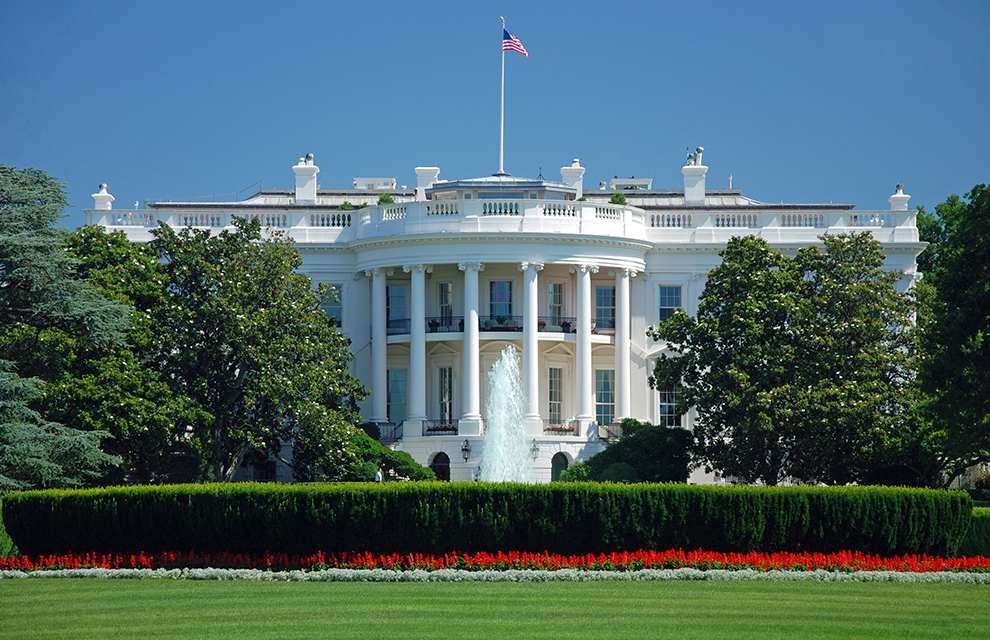USA
05 Feb 2025
After Joe Biden vetoed a Republican bill to overturn SAB 121 in the summer, Donald Trump’s new administration is easing off on regulation
 Image: daniela_photography/stock.adobe.com
Image: daniela_photography/stock.adobe.com
Rome was not built in a day, but could the crypto capital of the planet be built in a week? Donald Trump is certainly trying.Inaugurated back into the White House on 20 January, Trump sought to transform the cryptocurrency and digital asset markets immediately. As part of his presidential campaign he had ridden a wave of crypto-friendly promises that he claimed would transform the US into the “crypto capital of the planet”.
But what has actually happened so far?
Squashing SAB 121
On 23 January, the US Securities and Exchange Commission (SEC) announced the introduction of a new directive Staff Accounting Bulletin (SAB) 122.
SAB 122 will allow financial institutions a greater level of discretion when it comes to classifying held digital assets as liabilities and supersedes the divisive SAB 121.
SAB 121 had required reporting entities that act as custodians for crypto assets to include safeguarding liabilities and the corresponding assets as footnotes to financial statements. The SEC had said that it added guidance for entities “to consider when they have obligations to safeguard crypto-assets held for their platform users”.
Trump’s predecessor Joe Biden had controversially vetoed a bill that would have overturned the directive, adding that it “would inappropriately constrain the SEC’s ability to set forth appropriate guardrails and address future issues” and “jeopardise the well-being of consumers and investors.”
But, with Biden’s vice-president Kamala Harris beaten to the Oval Office by Trump and SAB 121 now essentially moot, the guardrails are off.
The news has been greeted with positivity from a number of large institutions looking to expand their influence within the digital asset space.
Donna Milrod, chief product officer and head of Digital Asset Solutions at State Street, described the former directive as “arbitrary” and welcomed that its removal, coupled with “leveraging the services and stability of well-regulated banks in the digital asset space is an important step forward for investors and capital markets.”
Similarly, a spokesperson for BNY stated: “This is an important milestone in furthering the institutional adoption of digital assets. We support the development of a legal and regulatory framework that promotes a level playing field for all market participants.”
The return to office of Trump and the rescinding of SAB 121 has pleased one person in particular. Speaking with Asset Servicing Times in July, Republican Senator Cynthia Lummis, who tabled the unsuccessful bill to have the directive removed, accused Biden’s administration of possessing “a well-documented history of using the most mundane, in-the-weeds rulemaking processes to force its overbearing regulations down Americans’ throats.”
Trump, she said, would “ensure America remains in the driver’s seat for the management of digital assets.”
If Trump is the driver, Lummis has taken on the role of the navigating passenger.
Digital discussions
Lummis’ deep interest in the digital assets space has not gone unnoticed either. The senator has been selected as the first ever chair of the new Senate panel devoted to digital assets by the Senate Banking Committee Chair Tim Scott.
Scott explains that, “Blockchain technology and cryptocurrency have the potential to democratise the financial world – and there’s no better champion for the industry than my friend Cynthia Lummis.
“Since day one, Senator Lummis has been a leader on digital assets legislation, and I am proud to have her spearhead the Banking Committee’s efforts through our new Subcommittee on Digital Assets. Working with the Trump administration and our colleagues in the House, we will advance a commonsense regulatory framework to facilitate innovation here in the United States, not overseas.”
The subcommittee will aim to develop and pass digital asset legislation and conduct “robust oversight” over the federal financial regulators.
After describing digital assets as “the future”, Lummis added that she wishes Congress to “urgently pass bipartisan legislation establishing a comprehensive legal framework for digital assets and that strengthens the US dollar with a strategic bitcoin reserve.”
Donald’s directive
President Trump is not waiting around for bills to develop and pass through congress before he puts his mark down on the industry and country, wasting no time to exercise his powers and sign through a series of executive orders.
From signing an order to end gender transitions for people under the age of 19, to preparing a huge detention facility at Guantánamo Bay, to an order to have the US exit the World Health Organisation, Trump has been far from brazen in his orders.
He did, however, sign an order which establishes federal policy promoting and supporting the digital assets industry.
The order establishes a working group that, within 180 days, will propose a regulatory framework for governing digital assets as well as the creation of a national digital asset stockpile.
The SEC, led by its acting chairman Mark Uyeda, has also responded to the increased pressure on the industry from the executive branch by creating its own crypto task force.
Overseen by Commissioner Hester Peirce, the group will aim to produce a comprehensive and clear regulatory framework for crypto assets.
The SEC says that the regulation had been confusing and created “an environment hostile to innovation and conducive to fraud.”
Peirce has called for patience and collaboration. He said: “This undertaking will take time, patience, and much hard work.
“It will succeed only if the Task Force has input from a wide range of investors, industry participants, academics, and other interested parties. We look forward to working hand-in-hand with the public to foster a regulatory environment that protects investors, facilitates capital formation, fosters market integrity, and supports innovation.”
Within a week of being back in the Oval Office, Trump has unleashed a wave of changes to the crypto and digital asset markets.
The President has cut regulation back in the hope it will breed innovation and growth — whether this will be done in a fair, transparent way for investors, will remain to be seen.
But what has actually happened so far?
Squashing SAB 121
On 23 January, the US Securities and Exchange Commission (SEC) announced the introduction of a new directive Staff Accounting Bulletin (SAB) 122.
SAB 122 will allow financial institutions a greater level of discretion when it comes to classifying held digital assets as liabilities and supersedes the divisive SAB 121.
SAB 121 had required reporting entities that act as custodians for crypto assets to include safeguarding liabilities and the corresponding assets as footnotes to financial statements. The SEC had said that it added guidance for entities “to consider when they have obligations to safeguard crypto-assets held for their platform users”.
Trump’s predecessor Joe Biden had controversially vetoed a bill that would have overturned the directive, adding that it “would inappropriately constrain the SEC’s ability to set forth appropriate guardrails and address future issues” and “jeopardise the well-being of consumers and investors.”
But, with Biden’s vice-president Kamala Harris beaten to the Oval Office by Trump and SAB 121 now essentially moot, the guardrails are off.
The news has been greeted with positivity from a number of large institutions looking to expand their influence within the digital asset space.
Donna Milrod, chief product officer and head of Digital Asset Solutions at State Street, described the former directive as “arbitrary” and welcomed that its removal, coupled with “leveraging the services and stability of well-regulated banks in the digital asset space is an important step forward for investors and capital markets.”
Similarly, a spokesperson for BNY stated: “This is an important milestone in furthering the institutional adoption of digital assets. We support the development of a legal and regulatory framework that promotes a level playing field for all market participants.”
The return to office of Trump and the rescinding of SAB 121 has pleased one person in particular. Speaking with Asset Servicing Times in July, Republican Senator Cynthia Lummis, who tabled the unsuccessful bill to have the directive removed, accused Biden’s administration of possessing “a well-documented history of using the most mundane, in-the-weeds rulemaking processes to force its overbearing regulations down Americans’ throats.”
Trump, she said, would “ensure America remains in the driver’s seat for the management of digital assets.”
If Trump is the driver, Lummis has taken on the role of the navigating passenger.
Digital discussions
Lummis’ deep interest in the digital assets space has not gone unnoticed either. The senator has been selected as the first ever chair of the new Senate panel devoted to digital assets by the Senate Banking Committee Chair Tim Scott.
Scott explains that, “Blockchain technology and cryptocurrency have the potential to democratise the financial world – and there’s no better champion for the industry than my friend Cynthia Lummis.
“Since day one, Senator Lummis has been a leader on digital assets legislation, and I am proud to have her spearhead the Banking Committee’s efforts through our new Subcommittee on Digital Assets. Working with the Trump administration and our colleagues in the House, we will advance a commonsense regulatory framework to facilitate innovation here in the United States, not overseas.”
The subcommittee will aim to develop and pass digital asset legislation and conduct “robust oversight” over the federal financial regulators.
After describing digital assets as “the future”, Lummis added that she wishes Congress to “urgently pass bipartisan legislation establishing a comprehensive legal framework for digital assets and that strengthens the US dollar with a strategic bitcoin reserve.”
Donald’s directive
President Trump is not waiting around for bills to develop and pass through congress before he puts his mark down on the industry and country, wasting no time to exercise his powers and sign through a series of executive orders.
From signing an order to end gender transitions for people under the age of 19, to preparing a huge detention facility at Guantánamo Bay, to an order to have the US exit the World Health Organisation, Trump has been far from brazen in his orders.
He did, however, sign an order which establishes federal policy promoting and supporting the digital assets industry.
The order establishes a working group that, within 180 days, will propose a regulatory framework for governing digital assets as well as the creation of a national digital asset stockpile.
The SEC, led by its acting chairman Mark Uyeda, has also responded to the increased pressure on the industry from the executive branch by creating its own crypto task force.
Overseen by Commissioner Hester Peirce, the group will aim to produce a comprehensive and clear regulatory framework for crypto assets.
The SEC says that the regulation had been confusing and created “an environment hostile to innovation and conducive to fraud.”
Peirce has called for patience and collaboration. He said: “This undertaking will take time, patience, and much hard work.
“It will succeed only if the Task Force has input from a wide range of investors, industry participants, academics, and other interested parties. We look forward to working hand-in-hand with the public to foster a regulatory environment that protects investors, facilitates capital formation, fosters market integrity, and supports innovation.”
Within a week of being back in the Oval Office, Trump has unleashed a wave of changes to the crypto and digital asset markets.
The President has cut regulation back in the hope it will breed innovation and growth — whether this will be done in a fair, transparent way for investors, will remain to be seen.
NO FEE, NO RISK
100% ON RETURNS If you invest in only one asset servicing news source this year, make sure it is your free subscription to Asset Servicing Times
100% ON RETURNS If you invest in only one asset servicing news source this year, make sure it is your free subscription to Asset Servicing Times



